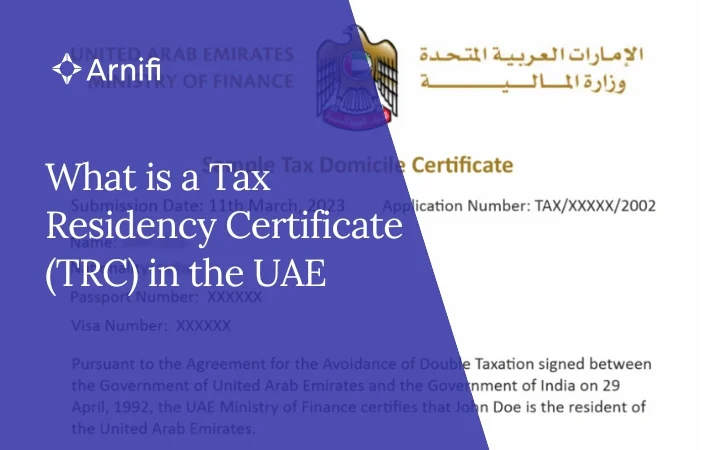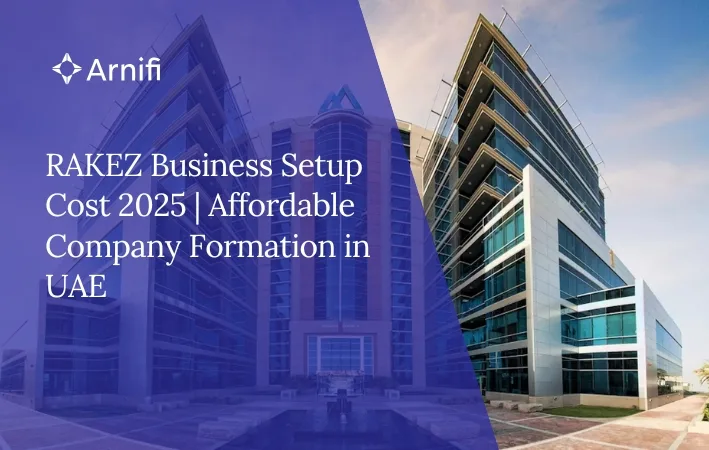Simplifying VAT in the UAE
by Shethana Sep 23, 2024  11 MIN READ
11 MIN READ

The introduction of VAT in the UAE on January 1, 2018, was a big move for the country’s effort to diversify its economy. The UAE government started this to create a new source of income. This new system helps to fund important public services like healthcare, education, and infrastructure. With this rollout, the UAE is trying to lessen its dependence on oil money. They want to build a more sustainable and varied economy.
Introduction to VAT in the UAE
Value Added Tax, or VAT, is an indirect tax on goods and services. It applies at different stages of the supply chain, starting from production to the final sale. This tax is based on consumption, which means that the final consumer usually pays the tax. In the UAE, VAT is charged on most goods and services sold.
As a consumption tax, VAT is included in the price that customers pay. Businesses are important in managing VAT. They collect the tax from their customers and send it to the tax authorities regularly. The introduction of VAT shows the UAE’s aim to match its economy with global standards. By diversifying revenue sources, the government helps enhance financial stability and invests in long-term growth.
The Basics of VAT
At its core, VAT is a tax on what we consume. Instead of taxing income or profits directly, it is charged on the added value at every step of making and selling products. This means each business in the supply chain pays VAT on the extra value they contribute to the goods or services.
VAT is an indirect tax. The final consumer does not pay it straight to the government. Instead, businesses collect VAT along the supply chain. They do this on behalf of the government by adding VAT to the cost of products and services. Then, businesses report their VAT activities to the government and can deduct any VAT they have paid for their own supplies.
Understanding the basics of VAT may seem tricky at first, but it promotes transparency and accountability among businesses. These businesses play an important role in collecting and paying VAT, helping the government get tax money. This system supports the UAE’s overall economic growth and stability.
The Importance of VAT for the UAE Economy
The introduction of VAT is an important government move for the UAE’s economy. Since it started, its impact has been clear. One main reason for implementing VAT was to create a new source of income for the government. Before VAT, most of the UAE’s revenue came from oil and gas exports.
Now, VAT gives the government a more stable and reliable way to earn money. This money helps pay for public services, build infrastructure, and support various government projects that are key for economic growth. By moving away from heavy reliance on the oil market, the UAE is building a stronger financial future.
Also, the introduction of VAT helps align the UAE’s tax system with what is seen globally. This makes the UAE more attractive for foreign investment and supports a stronger and more competitive business environment. By adopting VAT, the UAE shows it is serious about meeting international standards and keeps its status as a key player in global trade and commerce.
Understanding VAT Rates in the UAE
Navigating the UAE’s VAT system means understanding its rates. The main VAT rate in the UAE is 5%. This rate is used for most goods and services. It means 5% of the price is added as VAT for taxable supplies.
The UAE also allows for some exemptions and zero-rated supplies. This shows that the government supports certain sectors. The tax system considers unique economic needs. It offers relief and helps growth in areas important for the overall development of the nation.
Standard VAT Rate and Applicable Goods and Services
The UAE’s standard VAT rate of 5% applies to a wide range of goods and services, termed taxable supplies. This means that businesses involved in supplying these goods or services are required to charge VAT to their customers.
This approach ensures a consistent application of VAT across sectors and supports the UAE government’s objective of establishing a broad-based and transparent tax system. It fosters a level playing field for businesses operating in the country.
Here are some examples of standard-rated supplies:
| Goods | Services |
| Electronics | Hotel accommodations |
| Clothing and footwear | Restaurant meals |
| Cars | Telecommunication services |
| Furniture and home appliances | Entertainment and recreational activities |
| Luxury items (e.g., jewelry, watches) | Legal and professional services |
These categories are meant to be illustrative, and the specific VAT treatment of a good or service should be confirmed with the relevant regulations.
Zero-Rated and Exempt Supplies
In the UAE, most goods and services have a standard VAT rate of 5%. However, some categories are zero-rated or exempt. These choices help certain sectors to grow.
Zero-rated supplies do have VAT, but at a rate of 0%. This means businesses do not charge VAT to customers. They can get back the VAT they paid on their costs. Examples of zero-rated supplies are healthcare supplies, education, exports of goods and services, and international transportation. On the other hand, exempt supplies do not have VAT. Businesses do not charge VAT on them and cannot get back any VAT paid on related costs. Financial services are an example of exempt supplies in the UAE.
It’s important for businesses to understand the difference between zero-rated and exempt supplies. This knowledge helps them calculate VAT correctly, follow UAE VAT law, and improve their financial operations.
VAT Registration Process for Businesses
VAT registration is an important step for businesses in the UAE. It helps them follow the tax rules. The process is handled by the Federal Tax Authority (FTA). This means figuring out how much tax a business has to pay and getting a tax registration number (TRN). Knowing the VAT registration threshold is the first step to meet the rules.
The FTA has created an easy online registration process. This makes it simple for businesses to register for VAT. Following this process helps businesses fit into the UAE’s tax system. It also helps with economic transparency.
Criteria for VAT Registration
VAT registration is not required for every business in the UAE. Certain criteria decide if a business needs to register. These criteria mainly focus on its taxable turnover. Knowing these criteria is the first step to staying compliant.
The mandatory registration threshold is set for businesses that make more than AED 375,000 in a year from taxable supplies. There is also a lower threshold of AED 187,500, which allows for voluntary registration.
Voluntary registration can be smart for businesses that think they will exceed the mandatory threshold soon. It helps recover input VAT and could improve their finances. By understanding both the mandatory and voluntary registration thresholds, businesses can accurately check their VAT obligations and follow the law.
Step-by-Step Guide to Registering for VAT
Registering for VAT in the UAE is a simple process that you can do completely online. This is done through the Federal Tax Authority (FTA). It makes it easy for businesses to handle their tax responsibilities. Here’s how it works:
First, create an e-services account on the FTA website. This account will help you manage everything related to VAT. During registration, you need to give details about your business. This includes your trading name, legal structure, contact information, and banking details. You will also have to share important documents. These should include a valid trade license, your Emirates ID, and any other necessary papers. Make sure your application is both accurate and complete.
After finishing the application, submit it through the e-services portal. The FTA will check your application. When it is approved, your business will receive a tax registration number. This number is important for all your future VAT transactions and any dealings with the FTA.
VAT Compliance and Filing Returns
Compliance is a key part of the UAE VAT system. The Federal Tax Authority (FTA) requires businesses to keep accurate records of all financial transactions related to VAT. It’s important not just to record, but also to make sure these records are correct and complete. This is a basic part of VAT compliance.
Filing VAT returns regularly is also vital for compliance. Businesses need to submit these returns to the FTA at set times. This shows a report of VAT transactions for that time. It includes the output tax collected from sales and the input tax paid on purchases.
Record Keeping for VAT Compliance
Maintaining careful VAT records is very important for businesses in the UAE. It is not just a rule, but it helps ensure that businesses follow VAT laws. These records show a clear trail of all transactions. This helps both the business and the tax authorities see everything that has happened.
Businesses must keep a range of documents. This includes tax invoices for every supply or import of goods and services. They should also keep any alternative documents, tax credit notes, and any updated papers. It is important to record any goods or services used for personal reasons to keep good records.
These records should be easy to access for at least five years. This time frame allows the FTA to check and confirm the correct VAT calculations. Keeping good records helps businesses follow the law and supports them in making smart financial choices.
How to File VAT Returns
Filing VAT returns is an important part of keeping up with VAT rules in the UAE. Businesses that are registered for VAT need to submit these returns to the Federal Tax Authority (FTA) regularly, usually every three months.
A VAT return gives a clear picture of all VAT transactions during a certain period. It shows how much VAT was added to sales (output VAT) and how much VAT was paid on purchases (input VAT). The difference can help businesses claim a tax credit for VAT paid on business purchases.
Filing VAT returns is done electronically. Businesses can use the FTA’s e-services portal. This portal is easy to use. It allows businesses to input their VAT details correctly and submit their returns safely online. After they file, businesses need to pay any VAT they owe to the FTA or ask for a refund if they paid more input VAT than output VAT.
Understanding VAT in the UAE is important for businesses. It helps them follow rules and support the economy. This guide makes it easy to learn about VAT. You will find information on basic VAT, how to register, and how to stay compliant. Knowing the rates, registration requirements, and how to file helps you handle VAT more easily. Stay up-to-date, keep your records straight, and file your returns on time to run your business smoothly. If you have questions or need help with VAT in the UAE, check our FAQ section or get advice from a professional. Make your VAT journey simpler and help your business succeed in the UAE.
Frequently Asked Questions
Who needs to register for VAT in the UAE?
Businesses in the UAE need to register for VAT if the value of their taxable goods and services goes over AED 375,000. This requirement comes from Federal Law. Companies can also choose to register for VAT voluntarily if their yearly turnover is more than AED 187,500.
How does VAT affect small businesses?
VAT is a tax that is added to most goods and services. It can impact small businesses because they must add VAT to what they charge their customers. Although this might raise their costs a little, small businesses can get back some of this tax, called input tax. This helps reduce the overall effect and makes people less likely to avoid paying taxes.
Can tourists claim VAT refunds in the UAE?
Yes, tourists can get back VAT for goods bought from businesses that are part of the ‘Tax Refunds for Tourists Scheme.’ However, some services do not qualify for refunds. This includes things like accommodation, car rentals, and passenger transport, even if they follow the standard rate.
At Arnifi, we maintain complete transparency. You can check out our offers here.
About Arnifi
Arnifi is digital first Corporate service provider helping companies enter the Middle East region, starting with UAE and Saudi Arabia markets. Founded and backed by professionals from Amazon, Souq and other large companies operating in KSA – the team understands what it takes to succeed as a startup in both UAE and Saudi Arabian markets, apart from going through the setup process multiple times. Arnifi will provide a truly digital experience to entry and scale up of companies both UAE and Saudi Arabia. The Arnifi promise is simple, yet revolutionary, use technology and a great team to provide transparency, efficiency and great customer experience in the whole process. Check out at – www.Arnifi.com for more details.
Top UAE Packages

Related Articles
Top UAE Packages



